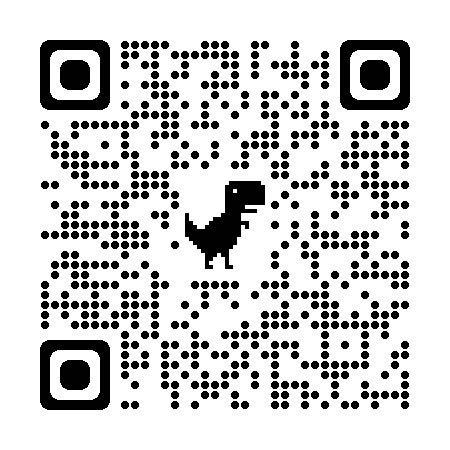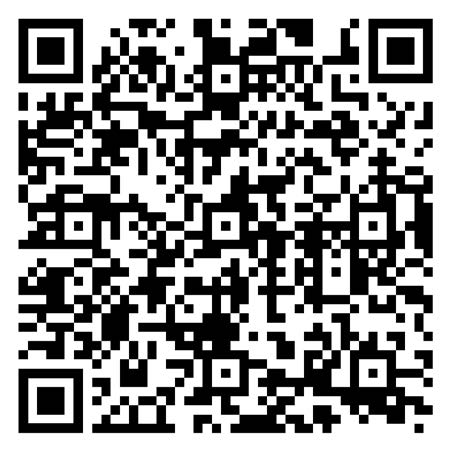
Volunteering for a research study can make a real difference to millions of people affected with mental health problems.
The UBC Department of Psychiatry conducts multiple studies on the causes of mental disorders and on potential new treatments.
Research studies aiming to evaluate the effectiveness of potential treatments are called clinical trials. Treatments can include medication, psychological therapy, neuromodulation, or other types of therapy.
For interested individuals, the research team provides detailed information about the procedures involved to enable them to reach an informed decision about their participation.
VOLUNTEER FOR A RESEARCH STUDY OR CLINICAL TRIAL IN:
Major Depressive Disorder
Feasibility Study of Long-Term Light and Ion Therapy for Maintenance Treatment in Depression (LIMIT-D)
Project Lead: Dr. Raymond Lam, Professor of Psychiatry, Mood Disorders Centre, UBC
Funding: Canadian Institutes of Health Research (CIHR)
Years: 3
This study explores the use of two separate non-medication treatments, light therapy and ion therapy, as a substitute for antidepressant medications to prevent return of symptoms when stopping antidepressants (AKA relapse). We modified half of the treatment devices so that they are inactive (AKA placebo). You have a one in two chance (like a coin flip) of receiving an active device. You may be eligible for this study if you are 19-65 years old, have taken an antidepressant for depression for at least 3 months and no more than 12 months, are no longer depressed and want to stop medications, and are willing to use a study device for 30 minutes a day at home for 6 months. To find out more about this study or contact lam.mddresearch2@ubc.ca or see the resources below:
Optimized Predictive Treatment In Medications for Unipolar Major Depression (OPTIMUM-D) Study
Project Lead: Dr. Raymond Lam, Professor of Psychiatry, Mood Disorders Centre, UBC
Funding: Canadian Institutes of Health Research (CIHR)
Years: 5
The purpose of this OPTIMUM-D study is to (1) test whether a specific combination of biomarkers discovered during our previous studies can help predict how someone will respond to treatment, and (2) to explore other possible biomarkers that may predict treatment response. This information may help us develop tests in the future that can guide treatment choice more effectively and more quickly. To find out more about this study or contact lam.mddresearch2@ubc.ca or see the resources below:
Study Eligibility & Participation Details
Augmentation versus Switch: Comparative Effectiveness Research Trial for Antidepressant Incomplete and Non-responders with Treatment Resistant Depression (ASCERTAIN-TRD)
Project Lead: Dr. Fidel Vila-Rodriguez, Assistant Professor of Psychiatry, UBC
Funding: Patient-Centred Outcomes Research Institute (PCORI)
Years: 4
This is a multi-site open-label trial comparing the effectiveness of three treatments in patients with treatment-resistant major depressive disorder who are on ongoing, stable, and adequate antidepressant therapy. Patients will be randomized to either aripiprazole augmentation, or augmentation with repetitive transcranial magnetic stimulation (rTMS) or switching to venlafaxine or duloxetine. rTMS is a non-invasive neuromodulation treatment. Aripiprazole, venlafaxine, and duloxetine are medications that have been approved for the treatment of depression. This study has been approved by the UBC Ethics Committee. For more information, please email ninet.lab@ubc.ca or afifa.humaira@ubc.ca; call Afifa Humaira at 604-822-7308; or visit https://ninet.med.ubc.ca
Patient-Oriented Randomized Pragmatic Feasibility Trial with rTMS in Depression and Anxiety (PORT)
Project Lead: Dr. Fidel Vila-Rodriguez, Assistant Professor of Psychiatry, UBC
Funding: Michael Smith Foundation for Health Research (MSFHR)
Years: 2020-2025
This trial compares the efficacy of two different neuromodulation treatments, intermittent theta-burst stimulation (iTBS) and low frequency repetitive transcranial magnetic stimulation (rTMS), for depression and anxiety symptoms in patients with treatment resistant depression (TRD), who are diagnosed with either major depressive disorder or bipolar disorder. Participants will be randomized to receive either iTBS or low frequency rTMS. This study also involves assessments of mood, blood smears, and cognitive assessments. This study is pending approval from the UBC Ethics Committee. For more information, please email ninet.lab@ubc.ca or afifa.humaira@ubc.ca; call Afifa Humaira at 604-822-7308; or visit https://ninet.med.ubc.ca
Left Intermittent Theta Burst Stimulation vs. Right Low Frequency Repetitive Transcranial Magnetic Stimulation Effectiveness in Depression and Suicidal Ideation: A Randomized Non-Inferiority Trial (LeRNIT)
Project Lead: Dr. Fidel Vila-Rodriguez, Assistant Professor of Psychiatry, UBC
Funding: Canadian Institutes of Health Research (CIHR)
Years: 2020-2025
The purpose of this trial compares the efficacy of two non-invasive neuromodulation treatments, low frequency repetitive transcranial magnetic stimulation (rTMS) and intermittent theta burst stimulation (iTBS), in treating patients with Major Depressive Disorder and suicidal ideation. Participants will be randomized to receive either daily iTBS or daily rTMS over 6 weeks. The study includes assessments of mood, MRI brain scan, recording of heart rhythm (ECG), cognitive assessments. This study is pending approval from the UBC Ethics Committee. For more information, please email ninet.lab@ubc.ca or afifa.humaira@ubc.ca; call Afifa Humaira at 604-822-7308; or visit https://ninet.med.ubc.ca
Additional information about clinical trials in Major Depressive Disorder can be found at the following website:
https://mood.med.ubc.ca/clinical-research-programs/unipolar-depression-studies/
Bipolar Disorder
Cannabidiol Adjunctive Therapy for Acute Bipolar Depression: A Randomized Double-Blind, Placebo Controlled Trial
Project Lead: Dr. Lakshmi Yatham, Professor of Psychiatry, UBC
Funding: Canadian Institute of Health Research
Years: 2023-2029
This study investigates whether adding Cannabidiol (CBD) to the current medications of people diagnosed with bipolar disorder improves symptoms of depression over a 6-week period compared to a placebo. We are seeking people diagnosed with bipolar disorder (type 1 or 2) who are 19-70 years of age, currently experiencing a depressive episode, and taking a medication for mood stabilization (lithium, valproate/epival, risperidone, olanzapine, quetiapine, aripiprazole, ziprasidone, lamotrigine or a combination of these). The study involves clinical questionnaires, blood samples, and tests of memory, attention, and concentration. Compensation will be provided for participation. For more information, please email bipolar.research@ubc.ca or call at 604-822-8045.
More information can also be found at: https://bit.ly/UBCCBD
A 6-Week Randomised, Double-Blind, Placebo-Controlled, Multicenter Study to Evaluate the Efficacy of Lurasidone Adjunctive Therapy in Improving Cognitive Functioning in Euthymic Bipolar Disorder Patients (ELICE-BD)
Project Lead: Dr. Lakshmi Yatham, Professor of Psychiatry, UBC
Funding: Grant – Sumitomo Dainippon Pharma Co., Ltd
Years: 2016-2025
UBC CREB# (H16-00129)
This study tests whether adding Lurasidone to current medications in people diagnosed with bipolar disorder improves cognitive abilities (for example, attention, memory) over a 6-week period compared to a placebo. Lurasidone is a medication approved for the treatment of bipolar disorder which may also help with any associated cognitive difficulties. We are looking for people diagnosed with bipolar disorder who are not currently experiencing a mood episode, are 19-65 years of age, and are clinically stable on their current medication. The study involves clinical questionnaires, and tests of memory, reasoning and attention. Compensation will be provided for participation. For more information, please email at bipolar.research@ubc.ca or call at 604-822-3769.
More information can also be found at https://www.reachbc.ca/search#/project/study/50 and https://www.vchri.ca/research-study/study-efficacy-lurasidone-cognitive-functioning-bipolar-patients-elicebd.
Cognitive outcomes and the Response/Remission Efficacy of Convulsive Therapies in Bipolar Depression (CORRECT-BD)
Project Lead: Dr. Fidel Vila-Rodriguez, Assistant Professor of Psychiatry, UBC
Funding: Brain Canada
Years: 2018-2022
This study investigates a new non-invasive neurostimulation technique, Magnetic Seizure Therapy (MST), as an alternative to electroconvulsive therapy (ECT) for bipolar depression. We are seeking patients diagnosed with bipolar disorder who are currently depressed and are willing to receive brain stimulation treatments under general anesthesia. This study involves clinical questionnaires, cognitive assessments, measurement of brain waves (EEG), bi-weekly ECT or MST treatments. The study also involves regular monitoring visits and one follow-up visit 6 months after treatment. Participants will be remunerated. This study has been approved by Health Canada and the UBC Ethics Committee. For more information, please email ninet.lab@ubc.ca or michelle.avina@ubc.ca; call Michelle Avina at 604-822-7308; or visit https://ninet.med.ubc.ca
Cognitive outcomes and the Response/Remission Efficacy of Convulsive Therapies during Continuation (CORRECT-C)
Project Lead: Dr. Fidel Vila-Rodriguez, Assistant Professor of Psychiatry, UBC
Funding: Brain Canada
Years: 2018-2022
This study is a continuation of the CORRECT-BD trial and is only open to patients who have successfully enrolled in CORRECT-BD. The study compares the effectiveness of brain stimulation treatments – Magnetic Seizure Therapy (MST) and electroconvulsive therapy (ECT), in maintaining clinical improvement. This study involves clinical questionnaires, cognitive assessments, measurement of brain waves (EEG), ECT or MST treatments under general anesthesia, regular monitoring visits, and one follow-up visit after treatment. Participants will be remunerated. This study has been approved by Health Canada and the UBC Ethics Committee. For more information, please email ninet.lab@ubc.ca or michelle.avina@ubc.ca; call Michelle Avina at 604-822-7308; or visit https://ninet.med.ubc.ca
Efficacy of Cariprazine in Improving Cognitive Functioning in Euthymic patients with Bipolar I Disorder: A Proof of Concept Randomized, Double Blind Placebo Controlled Trial
Principal investigator: Dr. Lakshmi Yatham, Professor of Psychiatry, UBC
Funding: Grant – Allergen Inc.
Years: 2021-2026
UBC CREB: (#H20-01293)
This study is tests whether adding Cariprazine to current medication in people diagnosed with bipolar disorder improves cognitive abilities (for example, attention, memory) over a 6-week period compared to a placebo. Cariprazine is a medication approved for the treatment of bipolar disorder in the USA which may also help with any associated cognitive difficulties. We are looking for patients diagnosed with bipolar disorder who are not currently experiencing a mood episode, are 19-65 years of age, and are clinically stable on current medication. The study involves clinical questionnaires, and tests of memory, reasoning and attention. Compensation will be provided for participation. The study has been approved by the UBC Ethics Committee (# H20-01293). For more information, please email jayasree.basivireddy@ubc.ca or call Jayasree at 604-822-3769.
More information can also be found at https://www.vchri.ca/research-study/assessing-role-cariprazine-improving-cognition-euthymic-bipolar-patients-carpz-01 and ClinicalTrials.gov.
Synapse-BD: Assessing neurite density and neuroinflammation in bipolar disorder
Project Lead: Dr. Lakshmi Yatham, Professor of Psychiatry, UBC
Funding: Private Donor
Years: 2020-2022
UBC CREB# H20-01659
This study tests whether some brain changes seen in people diagnosed with bipolar disorder may be related to inflammation, as this would have important implications for future treatment development. We are seeking people diagnosed with bipolar disorder (type 1) who are clinical stable, not currently in a mood episode are 19-50 years of age and are of average weight (BMI of 18-29.9). We are also recruiting comparison individuals without any history of mental health disorders with the same age-range and BMI-range. The study involves clinical questionnaires, tests of thinking abilities and a brain scan. Compensation will be provided for participation. For more information, please email bipolar.research@ubc.ca or call at 604-822-8045.
More information can also be found at https://www.reachbc.ca/search#/project/study/74
Neuropsychiatric Disorders
Investigating individual functional targets to treat mild cognitive impairment with repetitive transcranial magnetic stimulation (FIRM)
Project Lead: Dr. Fidel Vila-Rodriguez, Assistant Professor of Psychiatry, UBC
Funding: Dawn Shaw Alzheimer’s Disease Research Grant
Years: 2021-2022
This study examines the effect of a non-invasive brain stimulation procedure, repetitive transcranial magnetic stimulation (rTMS) for improving thinking abilities in people with memory problems. The rTMS treatment will be personalized for each participant based on their brain scan. We are seeking individuals aged 55 year or older diagnosed with amnestic-type mild cognitive impairment. Participants should have a carer who would be able to accompany them to all study visits. This study involves clinical questionnaires, cognitive assessments, brain scans (MRI), brain wave measurements (EEG), and daily rTMS treatments, and follow-up visits 1-week and 3-months after treatment. Participants will be remunerated. This study has been approved by the UBC Ethics Committee. For more information, please email ninet.lab@ubc.ca or quincy.beck@ubc.ca; call Quincy Beck at 604-822-7308; or visit https://ninet.med.ubc.ca
Magnetic Seizure Therapy for Parkinson’s Disease (MST for PD)
Project Lead: Dr. Fidel Vila-Rodriguez, Assistant Professor of Psychiatry, UBC
Funding: 2021-2022
Years: Weston Brain Institute
This study investigates a new non-invasive neurostimulation technique, Magnetic Seizure Therapy (MST), for the treatment of depression in patients with Parkinson’s disease. We are seeking patients aged 50 years or older, who are diagnosed with Parkinson’s disease and are currently depressed. This study involves clinical questionnaires, cognitive assessments, measurement of brain waves (EEG), activity tracking (actigraphy), and bi-weekly MST treatments under general anesthesia. The study also involves regular monitoring visits and a follow-up visit 1 month after treatment. Participants will be remunerated. This study has been approved by Health Canada and the UBC Ethics Committee. For more information, please email ninet.lab@ubc.ca or michelle.avina@ubc.ca; call Michelle Avina at 604-822-7308; or visit https://ninet.med.ubc.ca
Substance Use and Addictions
Clairvoyant – A 24-Week, Multicentre, Randomized, Double-Blind, Placebo-Controlled, Parallel-Group, Phase 2 Clinical Trial to Evaluate Efficacy and Safety of Psilocybin-Assisted Psychotherapy in Adults with Alcohol Use Disorder (AUD)
Principal Investigator: Dr. Christian Schutz, Professor of Psychiatry, UBC
Funding: For-profit sponsor: Clairvoyant Therapeutics Inc.
Years: 2022-2024
UBC CREB #: H22-01565
This study is a Phase II clinical trial evaluating the safety and efficacy of psilocybin-assisted psychotherapy in adults with Alcohol Use Disorder (AUD) through analysis of alcohol consumption and symptom severity over 13 visits across approximately 29 weeks. We are looking for participants who are between 19 and 70 years of age, generally healthy with no unstable health conditions, and have alcohol dependence and/or use alcohol almost daily and in large amounts. This study involves clinical questionnaires, psychotherapy, and administration of psilocybin or placebo. Individuals will receive renumeration for their participation. This study has been approved by Health Canada and the UBC Ethics Committee. For more information, please email brainlab.clairvoyant@ubc.ca.
More information can also be found at https://brainlab.med.ubc.ca/projects/ or https://classic.clinicaltrials.gov/ct2/show/NCT05646303

